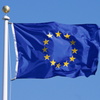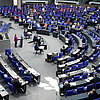G7 nations pledge their support to 76 countries worldwide
22 January 2016. The seven leading industrialised nations – Canada, France, Germany, Great Britain, Italy, Japan and the USA – have pledged to support 76 countries worldwide in strengthening their health care systems. A list of these countries was published today along with the "Final Report by the Federal Government on the 2015 G7 Presidency".
A working health care system is the best protection against health crises. The Ebola crisis gave us a dramatic demonstration of this once again. It is a positive achievement that the seven leading industrialised nations have now pledged concrete help for 76 countries worldwide to strengthen their local health care systems. As a result, it will be possible to clearly surpass the expectations raised by the G7 decisions taken in Elmau, Bavaria last year.
At the G7 summit in Elmau, the G7 nations committed to offering their assistance to at least 60 countries in implementing the International Health Regulations. The list published today encompasses 75 countries, among them 3 regional groups, which will be supported in building resilient health structures. The list is more a snapshot of the situation in late 2015; other states might be added. In the meantime one country (Malaysia) has been included.
The International Health Regulations (2005) are mandatory for all Member States of the World Health Organization (WHO). They serve to prevent the international spread of infectious diseases and are thus vital for containing cross-border epidemics. The Ebola crisis in West Africa is another recent example of the fact that the International Health Regulations have not been sufficiently implemented in many countries. Doing so requires technical know-how.
Hence, in co-operation with the Robert Koch-Institute (RKI), the Paul Ehrlich Institute (PEI), the Bernhard Nocht Institute for Tropical Medicine (BNITM) and the Federal Institute for Drugs and Medical Devices (BfArM), the Federal Ministry of Health will be systematically helping partner countries strengthen their health care systems. This commitment includes training staff for the management of health crises in the partner countries. Furthermore, a rapid response team consisting of epidemiologists and laboratory experts from the RKI and the BNITM will be formed, so as to assist in conducting diagnoses on the ground and in combating the disease as soon as an outbreak emerges. The programme will be launched in 2016 with four million euros in funding and is intended to run for an initial period of five years.
Moreover, the Federal Government will be increasing its investments in the training of health professionals in African partner countries by providing 205 million euros (in 2015 and 2016) within the framework of the Special Programme on Africa.
Additional information
-
G7 Health Ministers' Meeting in Berlin
Article on G7 Health Ministers' Meeting in Berlin
-
G7-Presidency
Overview page providing information about the German G7-Presidency
-
International Co-operation
Overview page about co-operation in the field of international health policy




























